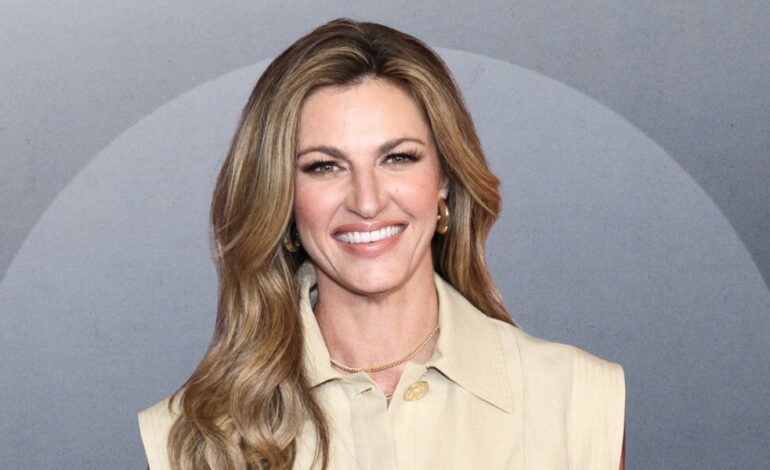Erin Andrews Reveals Regret: Why She Wishes She Started Family Planning Sooner

Note: This rewritten piece introduces Zoe Bennett as the author persona and presents a measured, well-sourced analysis of Erin Andrews’ public journey through infertility and cervical cancer, grounded in verified reporting.
A journalistic expert providing a well-researched, analytical take with key insights and data.
The latest reflection from Erin Andrews spotlights a hard truth about motherhood and medical history: her regret over not starting family planning earlier, a sentiment shaped by years of infertility and a cervical cancer diagnosis. In interviews and public remarks, the Fox Sports reporter has openly discussed how her path to motherhood unfolded through surrogacy, ultimately welcoming her son Mack with husband Jarret Stoll in June 2023. This timeline aligns with a broader conversation about fertility planning, aging, and access to reproductive technology, which has gained significant momentum in recent years.
Andrews began freezing eggs at 35, an early step that underscores the evolving landscape of fertility preservation. Yet she candidly notes that her journey was complicated by persistent fertility challenges and the cervical cancer diagnosis she received in September 2016. The cancer discovery came during a routine gynecological appointment, a stark reminder that cancers can lurk behind seemingly ordinary checkups. By November of the same year, she was deemed cancer-free after treatment, a milestone many patients celebrate, but the experience left lasting implications for her reproductive timeline.
The decision to pursue surrogacy did not come quickly or easily. Andrews has explained that her infertility was a long, emotionally taxing process, and her public reflections emphasize the importance of proactive health and fertility planning. Her stated regret centers on not having known sooner about options like egg freezing and in vitro fertilization, particularly in her 20s when these technologies were less openly discussed than they are today. She has used her platform to advocate for other women, urging younger professionals, especially those who aspire to high-demand careers in sports media, to consider fertility planning sooner rather than later.
The broader context here includes how cancer treatment can affect fertility. Cervical cancer and its treatment can influence ovarian reserve and reproductive options, compounding the complexity of family planning for women who want a larger family after a cancer diagnosis. Andrews’ experience underscores a dual lesson: the value of regular, preventive health checks and the potential long-term impact of oncologic treatment on fertility. In her case, early detection contributed to a favorable cancer outcome, illustrating how timely medical care can alter prognosis even when fertility goals are at stake.
Publicly available interviews and coverage show a consistent thread: Andrews encourages women to be forward-thinking about fertility and health. Her emphasis on preventive care — including routine gynecological visits and early discussions about egg freezing and IVF — reflects a growing movement toward proactive reproductive health planning. The message resonates across multiple interviews and outlets, reinforcing the idea that informed choices about fertility can shape personal and family trajectories for years to come.
It’s worth noting that other public figures have publicly navigated similar health and fertility conversations, providing a broader tapestry of experiences that anchor Andrews’ narrative in a shared cultural moment. While each journey is unique, the underlying themes—early planning, battling illness while pursuing motherhood, and leveraging reproductive technologies—are increasingly part of mainstream discourse.
What to watch next in this ongoing narrative is how Andrews’ openness continues to influence conversations about fertility in the world of sports journalism and among fans who follow her career. Will her advocacy translate into greater awareness and earlier action among aspiring professionals, and how will she address evolving medical options as technology advances? The answer may unfold in future interviews, updates on family planning decisions, and any new health guidance she shares with her audience. This is a story about timing, resilience, and the choices women make in the face of medical and professional pressures, with the hope that sharing experiences helps others navigate similar crossroads.
Sources: Celebrity Storm and People Magazine
E! News
Today.com
Attribution: Creative Commons Licensed (GO)
Attribution: Creative Commons Licensed (GO)




